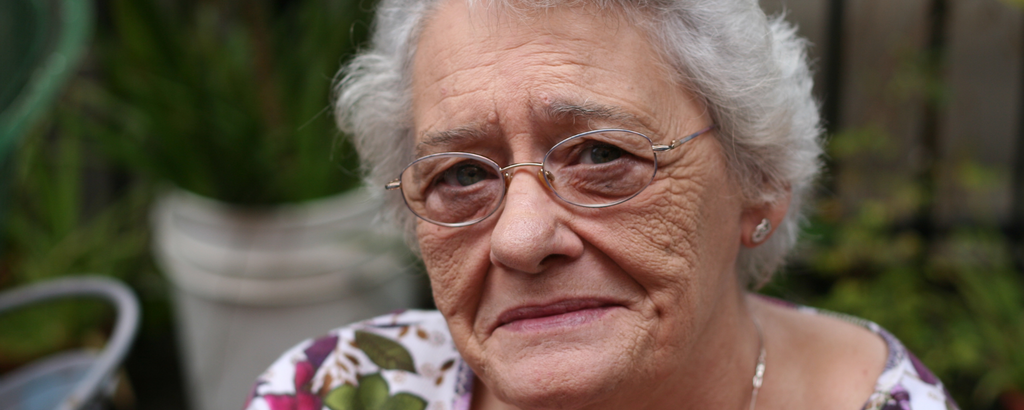
Program Spotlight: Understanding Adult Protective Services
I’m really worried about my neighbor up the street. She’s 83 and lives alone, but she’s been having more and more trouble keeping up with things around her home. Last week, I rang her doorbell to let her know she had a package delivered, and when she answered the door, I could see dirty dishes stacked up in her living room and full trash bags piling up in her kitchen that I worry she could trip over. I could see she had bandages on her skin so I asked her about them — she said not to worry, and mentioned that she hasn’t been able to make it to the pharmacy to pick up her regular eczema prescription. She’s told me many times how proud she is to still live in the home where she raised her kids, but I worry that she’s not caring for herself properly these days. I’ve offered to help her and she politely refuses. She’s the kindest lady — I don’t want to get her in trouble, or worse, risk her being sent off to an assisted living facility, but I don’t know how to help. What do I do?

Understanding Adult Protective Services
The goal of Adult Protective Services (APS) is to ensure that older adults are safe and that their needs are met in a way that empowers self-determination and independence. Kenneth Young Center is the APS provider for Elk Grove and Schaumburg Townships, and our team works tirelessly to serve older adults and their families.
Kenneth Young Center’s APS team proudly works alongside at-risk individuals to help protect their rights and to ensure their safety. During the pandemic, their work has become even more important, as older adults and people with disabilities are more isolated and as other community resources have become less available for in-person support. We have seen the number of APS cases climb in recent months and are working hard to ensure that each of our community members are connected with the support they need to live safely and independently.
Check out the Q&A below to find answers to common questions.
What is APS and How Does It Work?

APS is run by the Illinois Department on Aging that is carried out through several trained provider agencies across the state, including KYC. The program works to resolve abuse, neglect, or financial exploitation of people ages 60+ and adults with disabilities ages 18 – 59.
If a community member suspects that an older adult or an adult with a disability is being abused, financially exploited, or neglected, they can call APS to report the concern. A trained case manager will review the report and when appropriate, will reach out to the person who is potentially at risk to learn more about their situation. During this conversation, the case manager will recommend resources and supportive services that would secure the person’s safety and stability. With their permission, they may initiate an investigation into their safety and needs and will work alongside them to reduce the risk of harm.
What Kinds of Cases Does APS Handle?
APS can investigate cases of abuse, including physical, emotional, and sexual abuse, as well as cases of passive neglect, deprivation, and confinement of an older adult or an adult with a disability. They can also investigate cases of financial exploitation, and cases of self-neglect.
How Much Information Is Needed to Make a Report?
Basic information, such as the potentially at-risk individual’s name and address are needed, and approximate age and other contact information is helpful. Reporters should give a description of the suspected abuse, exploitation, or neglect situation. However, reporters do not need to do their own investigating before they call. This is an APS case manager’s job — they can take on the responsibility of researching further into the situation. As soon as you reasonably suspect the abuse or neglect, that is when you should call.
I’m Not Sure If I Should Call. What Should I Do?

Call! If you’re concerned about the safety of an older adult or a person with a disability, err on the side of calling to discuss the situation. Anyone in the state of Illinois can call APS at 1−866−800−1409, 1−888−206−1327 (TTY). By calling, you’re providing helpful information to a trained case manager who can take on the responsibility of deciding how to help next. If you’re still unsure whether or not you should report a case, you can call KYC’s Older Adults team to discuss the situation at 847−524−8800 and dial “2” in the phone menu. You’ll be connected with a member of KYC’s APS team who can help provide guidance and insight about the situation in question.
If you are concerned for anyone’s immediate safety, call 911. APS cannot provide immediate assistance to an at-risk individual, so first responders should always be called first if someone is currently in danger.
What If the At-Risk Person Doesn’t Want Support?

The at-risk person has a right to self-determination. This means that APS cannot force a competent at-risk person to proceed with an investigation about their safety or to accept supportive services without that person’s consent. Simply put, if the at-risk person decides that they don’t want assistance, they can refuse at any point. APS offers support and connections to resources and services for at-risk older adults and people with disabilities, but APS cannot force an individual to accept this help.
If I Make a Report, Will I Get Updates on the Case?
In most cases, no. After a report is made, the APS case manager cannot share any information regarding the at-risk individual or any potential investigations with any unauthorized individuals or entities, including whether or not an investigation is initiated. After the reporter shares their concern, their role in the process is likely over. Although it can be frustrating, the reporter will not be updated by APS without the at-risk individual’s permission, for the at-risk individual’s privacy. This privacy also applies to the reporter and the identity of the reporter is never shared with the at-risk individual or their family.
What Kind of Support Does an APS Case Manager Provide to At-Risk Individuals?
APS case managers work alongside at-risk individuals to help ensure their long-term wellbeing and stability. As long as the individual accepts their assistance, the APS case manager will recommend supportive services and provide helpful resources to the individual to help meet their established goal. The case manager may follow up to ensure that the individual is doing well, that any services they have initiated for support are going smoothly, or to provide any additional guidance or assistance as it arises. APS follow up and support services are tailored to each individual client and their unique situation, so follow up for each client will look a little different.

Who Can I Contact if I Have More Questions?
KYC’s APS team can be reached by calling 847−524−8800 and dialing “2” in the phone menu. Our team can answer any additional questions that you may have.

We are proud to celebrate Older Americans Month and the work we can do together to help keep older adults safe as part of our #KYC50For50 campaign of sharing 50 stories in honor of our 50th anniversary.
Previous Article Next Article

